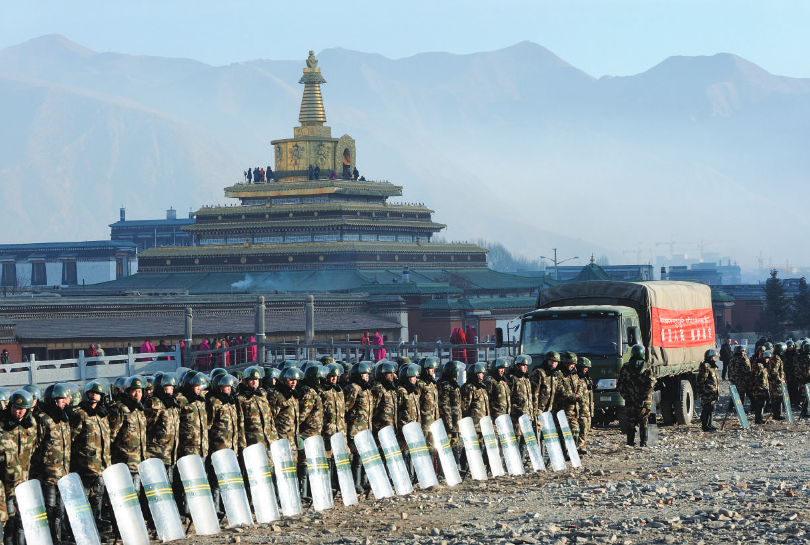
On 28 February 2017, Freedom House published a new report “The battle for China’s spirit”, which examines the evolution of the Chinese Communist Party’s policies of religious control and citizens’ responses to them since November 2012. Below is the original statement published on freedomhouse.org. You can download the report at: https://freedomhouse.org/report/china-religious-freedom
The Battle for China’s Spirit:
Religious Revival, Repression, and Resistance under Xi Jinping
The Chinese government’s controls over religion have intensified under Xi Jinping, seeping into new areas of daily life and triggering growing resistance from believers, according to the report The Battle for China’s Spirit, released today by Freedom House.
“Many spiritual activities practiced freely around the world—from fasting during Ramadan to praying with one’s children or performing Falun Gong meditation exercises—are restricted and can be harshly punished in China,” said Sarah Cook, a senior research analyst at Freedom House and the report’s author. “The scale and severity of controls over religion, and the trajectory of both growing persecution and pushback, are affecting Chinese society and politics far beyond the realm of religious policy alone.”
The Battle for China’s Spirit examines the evolution of the Communist Party’s policies of religious control and citizens’ responses to them since November 2012, in the first comprehensive analysis of its kind. It focuses on seven major religious groups that together account for over 350 million believers: Chinese Buddhism, Taoism, Catholicism, Protestantism, Islam, Tibetan Buddhism, and Falun Gong.
“The party’s rigid constraints render it impossible for state-sanctioned institutions to meet the growing demand for religion in Chinese society,” Cook said. “The result is an enormous black market, forcing many believers—from Taoists and Protestants to Tibetan Buddhists—to operate outside the law and to view the regime as unreasonable, unjust, or illegitimate.”
Religious controls have taken different forms for different localities, ethnicities, and denominations. In many parts of China, ordinary believers do not necessarily feel constrained in their ability to practice their faith. Others face bureaucratic obstacles, mandatory political “reeducation,” or economic exploitation.
But authorities also regularly deploy harsh penalties, long prison terms, and deadly violence against certain communities. At least 100 million people—nearly one-third of estimated believers in China—belong to religious groups facing “high” or “very high” levels of persecution.
Under Xi, many persecutory policies have expanded and evolved. A more restrictive legal environment has been put in place. Repression has expanded to target more state-registered congregations and leaders. And the government has adapted religious controls to a new technological landscape, increasing electronic surveillance at places of worship and imprisoning believers for sharing content on social media platforms or using tools to circumvent internet censorship.
“Despite tightening controls, millions of religious believers defy official restrictions in daily life. Indeed, the survival of groups and beliefs that the party has invested tremendous resources to crush represents a remarkable failure of the government’s repression,” Cook said. “It reflects the party’s difficulty in confronting citizens who are willing to make sacrifices for higher principles. From this perspective, it would appear that in the long-term battle for China’s spirit, an unreformed Communist Party will ultimately lose.”
Key findings on Tibetan Buddhism:
The Chinese authorities impose severe constraints on the religious practice of Tibetan Buddhists, most notably veneration of the exiled Dalai Lama. New measures imposed since November 2012 include punishing assistance to self-immolators, canceling previously permitted festivals, increasing restrictions on private religious practice, and more proactively manipulating Tibetan Buddhist doctrine and selection of religious leaders.